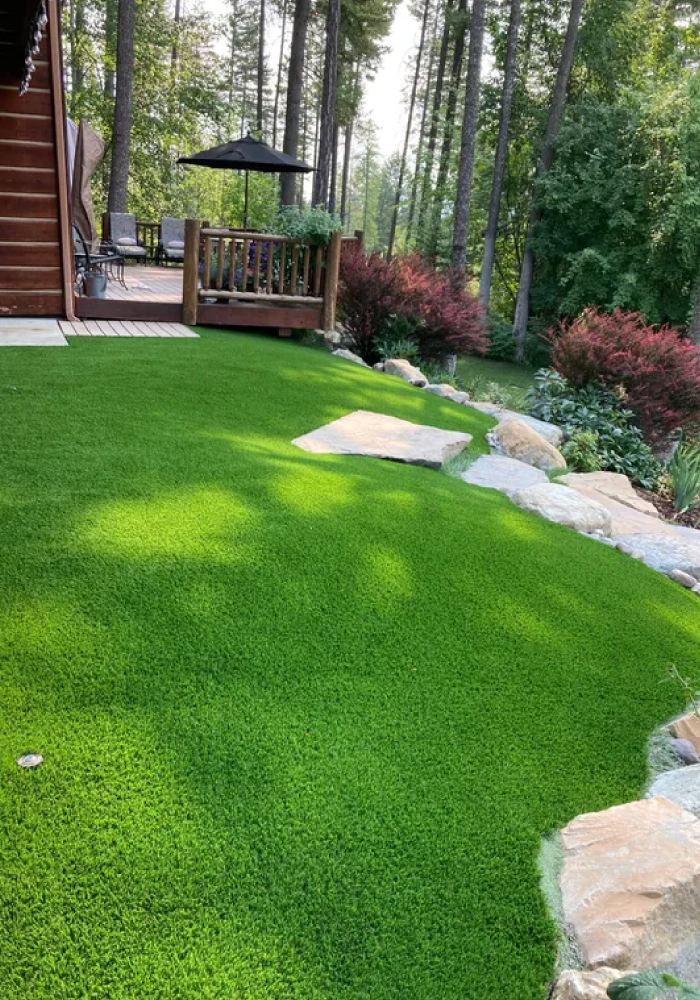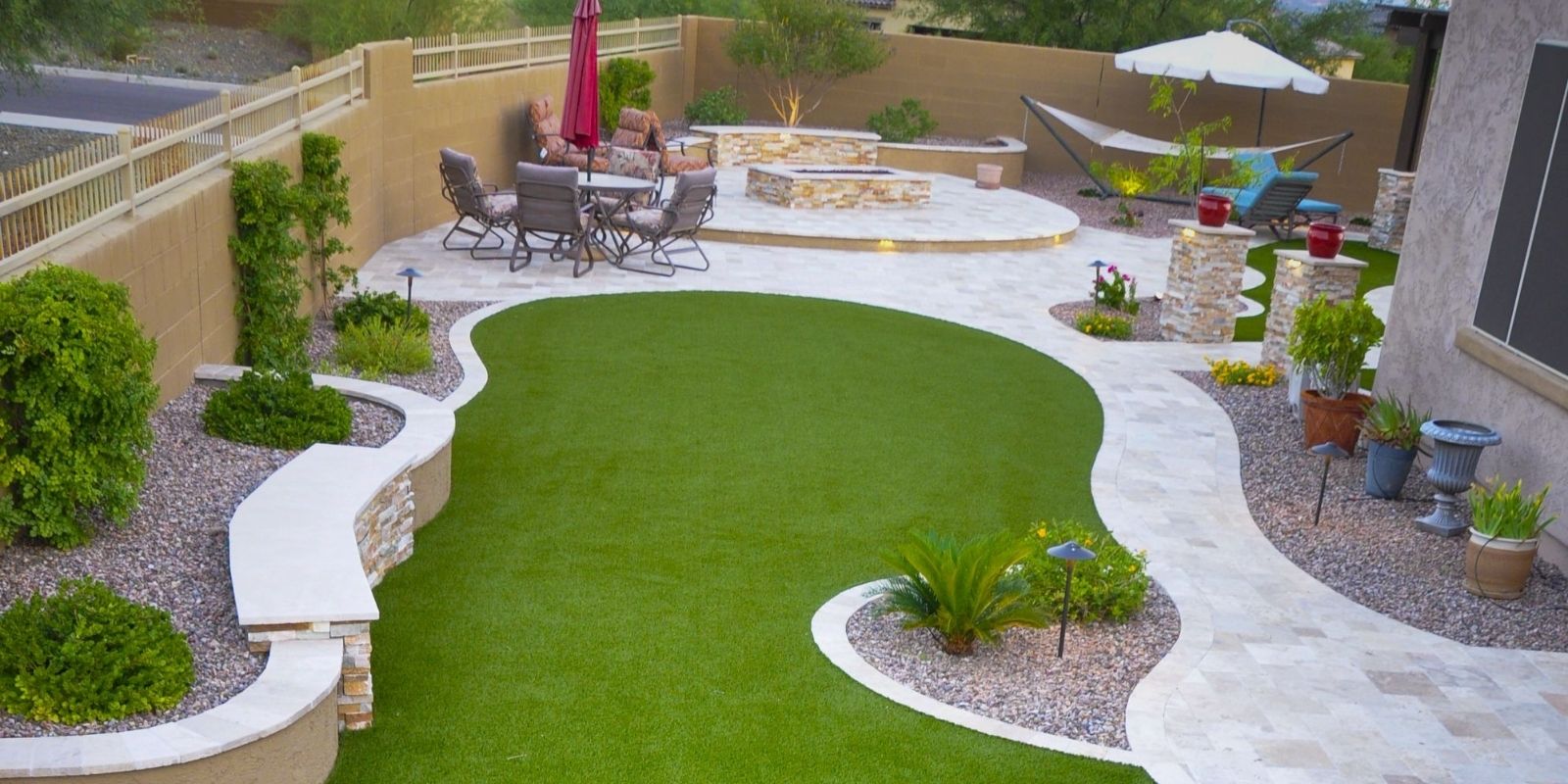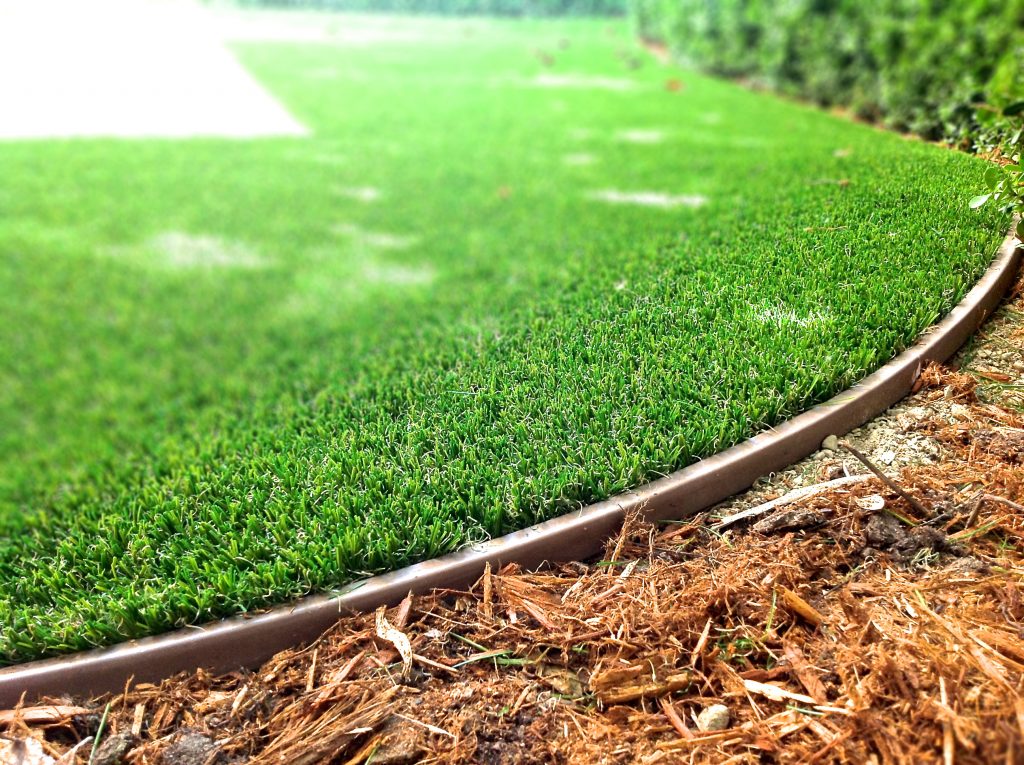Cost-Effective Turf Installation Phoenix AZ for a Hassle-Free Lawn Solution
See Why Homeowners Prefer Synthetic Grass for Sustainable Landscaping Practices
As homeowners progressively focus on sustainability in landscaping, fabricated turf has actually arised as a compelling option to typical grass. What stays to be discovered is the full range of advantages that artificial grass can supply to homeowners and the atmosphere alike.
Water Preservation Conveniences
One of the most substantial advantages of synthetic grass is its duty in water preservation. Traditional turf yards call for significant quantities of water to maintain their lush appearance, commonly bring about overuse of local water resources, particularly in dry areas. On the other hand, synthetic grass removes this need totally, as it does not call for watering. This not just conserves water but also decreases the stress on local water systems, especially throughout dry spell conditions.
In addition, the installation of synthetic grass can add to an extra lasting landscape. House owners can dramatically reduce their water expenses, enabling reallocation of resources to various other ecological efforts or home uses. In addition, fabricated lawn is created to endure various weather problems without the requirement for supplemental watering, making it a perfect selection for areas dealing with water scarcity.
The ecological benefits extend past instant water savings. By lowering water usage, synthetic turf aids to alleviate the impacts of environment modification, maintaining crucial environments that are threatened by too much water extraction. As lasting landscaping techniques get traction, fabricated grass becomes an accountable choice for house owners seeking to produce environmentally friendly outdoor areas.
Lowered Maintenance Initiatives
Synthetic grass substantially reduces maintenance initiatives compared to standard grass lawns. With fabricated turf, home owners can eliminate the lengthy jobs connected with all-natural landscape design, such as mowing, fertilizing, and weeding. This not only conserves valuable time however additionally reduces physical labor, making yard treatment accessible for individuals of any ages.
Among the most significant benefits is the lack of regular mowing. Conventional grass call for frequent trimming to preserve a cosmetically pleasing elevation, whereas synthetic grass continues to be consistently lush without the requirement for cutting. Furthermore, house owners no more require to use chemicals or fertilizers, which are usually required to keep natural lawn healthy. This shift not only lightens the workload but likewise advertises a neater, a lot more uniform look year-round.
Moreover, man-made turf is sturdy and resilient, calling for very little upkeep beyond periodic cleaning and washing to remove debris. This convenience of upkeep permits property owners to enjoy their outside spaces without the constant worry of upkeep, offering even more time for recreation and family members activities. Eventually, the minimized upkeep initiatives related to fabricated grass make it an attractive alternative for those seeking a low-maintenance, aesthetically appealing landscape.

Environmental Impact Reduction
There is an expanding acknowledgment of the ecological benefits linked with synthetic grass, particularly in terms of water conservation and decreased chemical usage. Traditional yards require significant quantities of water, specifically in drought-prone areas, bring about raised pressure on local water sources. In comparison, synthetic grass eliminates the requirement for watering, substantially decreasing water usage and advertising sustainability.
In addition, standard yard upkeep typically entails the application of plant foods, chemicals, and herbicides, which can add to dirt and water pollution. Synthetic turf mitigates this environmental danger by calling for marginal upkeep and practically eliminating the need for unsafe chemicals. This not only boosts soil health however additionally protects neighborhood environments from toxic overflow.
Additionally, the manufacturing of natural turf lawns generally involves making use of fossil fuels for cutting and landscaping devices, more adding to greenhouse gas emissions. By picking synthetic lawn, property owners can significantly reduce their carbon footprint connected with yard treatment tasks.
Aesthetic Charm and Flexibility
In enhancement to its ecological advantages, synthetic grass offers substantial visual charm and adaptability for landscaping. Property owners can achieve a lavish, eco-friendly appearance year-round, eliminating the seasonal fluctuations generally connected with all-natural turf. This consistent visual not only improves the visual allure of a residential property however likewise contributes to a properly maintained and polished look.
In addition, fabricated lawn is readily available in a variety of colors, styles, and structures, permitting personalization to fit individual preferences and layout themes - Artificial turf companies phoenix. Whether used in residential gardens, industrial areas, or recreational locations, it can seamlessly integrate into varied landscaping styles, from modern-day minimal to lavish tropical settings
The flexibility of man-made turf expands past mere appearance; it can be installed in various places, including rooftops, patios, and also indoor rooms, producing possibilities for special landscaping solutions. In addition, it appropriates for a range of activities, from children's play areas to pet-friendly environments, supplying performance without try here endangering design.
Ultimately, the aesthetic charm and adaptability of synthetic grass make it an attractive choice for property owners looking for lasting landscaping remedies that do not give up elegance for ecological responsibility.

Long-Term Price Savings
Among the most engaging benefits of artificial lawn is its capacity for lasting price financial savings. Unlike all-natural lawn, which calls for regular maintenance-- including mowing, watering, fertilizing, and insect control-- man-made turf substantially minimizes these recurring expenditures. Homeowners can save a substantial quantity on water costs, particularly in areas where water deficiency is a pushing issue. The removal of grass treatment solutions better contributes to financial cost savings, as there is no demand for specialized devices or labor.
Additionally, synthetic grass has a lifespan of 15 to 25 years, relying on its high quality and usage. This longevity lessens replacement prices, making it a more affordable option in the future. The initial financial investment in artificial grass can often be recovered via the savings accumulated over time.
While the upfront expense might seem higher contrasted to sod installment, the collective financial savings from decreased upkeep and water use typically surpass these initial expenditures. Eventually, the fostering of artificial grass not just advertises a sustainable landscaping option yet also provides house owners a monetarily savvy option that lines up with long-lasting budgeting objectives.
Verdict
Synthetic grass becomes an engaging alternative for lasting landscape design, offering significant advantages in water conservation, decreased maintenance efforts, and reduced ecological effect. Its visual allure and versatility enhance the visual landscape while aligning with modern sustainability goals. Furthermore, long-term cost savings add to useful reference its attractiveness for homeowners. As areas progressively prioritize ecologically friendly practices, the adoption of fabricated lawn stands for a modern step toward attaining lasting and durable landscapes.
Furthermore, artificial lawn is developed to endure various weather conditions without the need for supplementary watering, making it a suitable choice for areas dealing with water deficiency. (Phoenix turf companies)

Synthetic grass emerges as an engaging alternative for lasting landscaping, providing significant benefits in water preservation, decreased maintenance initiatives, and reduced environmental impact.